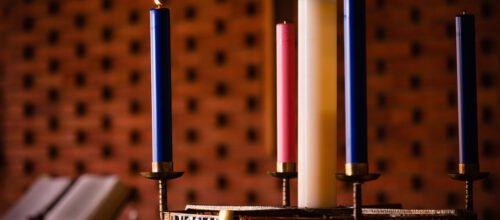Concerning Rebaptism for Christians
When we depend on ourselves, our strength, our goodness, even our faith, it will fail. In fact, when we build our house on anything but the rock it will be destroyed. Idols will all fall away.
When we depend on ourselves, our strength, our goodness, even our faith, it will fail. In fact, when we build our house on anything but the rock it will be destroyed. Idols will all fall away.
The resurrection is the foundation of the Christian faith. This teaching is one of the fundamental articles of the faith.
On March 31st 1515 Pope Leo X issued a bull of plenary indulgence to remove sins’ temporal penalties that clung to the souls of the living and the dead.
The events of October 31st 1517, the day that Luther nailed his Ninety-Five Theses to the church door in Wittenberg, were not set in motion by a man’s ambitious vision to revolutionize the spirituality of the west. Nor were they set in motion by Luther’s iconoclastic vainglory that sought to topple the ancient powers of tradition and the papacy. Rather, Luther swung his hammer as a pastor. He cared for the eternal welfare of his flock.
If you think about theological error like the course of a ship, a little variance in the direction of the ship can have immense effects on the final trajectory toward the destination.
“But the serpent said to the woman, ‘You will not surely die.’” (Genesis 3:4)
The most enduring symbol of the Lutheran Reformation is the seal that Luther himself designed to represent his theology. By the early 1520s, this seal begins to appear on the title page of Luther’s works.
Praying for a kingdom seems a bit strange for citizens of the 21st century. We’re used to parliaments, congresses, representatives, and presidents.

There is so much beauty and rich tradition during the season of Advent to prepare Christians for the coming of Jesus, the babe of Bethlehem.
Luther said, “The cross alone is our theology.” Another way to say this is Solus Christus, or “Christ alone” saves us.
As the sixteenth century dawned, there were essentially three answers given to the question: who rules the Church?
One of the chief concerns of the Lutheran Reformers was to protect the conscience of each believer from being harmed by the burdens of works-righteousness or other sorts of legalism.
The confession of the person and work of Jesus Christ—His justification of sinful humanity—forms the heart of theology, and informs all of the Church’s confession and practice.
Don’t be afraid to read the Bible. God has set forth His Law and His Gospel in the plainest terms.
Luther says that this article on the Holy Spirit is about us being made holy.